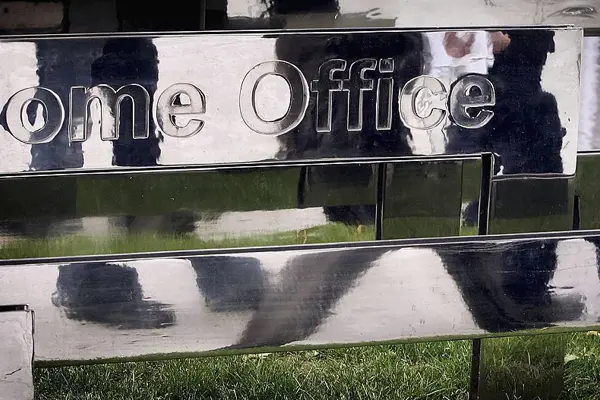
Consumer group actions: a vital pathway to corporate accountability
Shazia Yamin, a partner in the Product Safety and Consumer Law team, discusses how consumer group actions are being used to hold corporations to account following allegations of vehicle emission test cheating and why further regulatory action is necessary.
Posted on 07 July 2021
The allegations that certain vehicle manufacturers have installed software in some of their diesel vehicles to enable them to cheat emissions tests give rise to concerns that there has been a long established and industry-wide practice of ignoring emissions standards that were introduced to limit the harm caused to the environment and public health by vehicle emissions.
The allegations of emissions test cheating give rise to two separate issues of accountability which need to be considered:
- Holding the vehicle manufacturers to account on behalf of vehicle owners who have purchased the affected vehicles, and
- Holding the vehicle manufacturers to account for the resulting harm to the environment and public health.
The consumer group actions being pursued in the wake of the diesel emissions scandal provide an avenue through which vehicle manufacturers can be held to account on behalf of vehicle owners who have purchased the affected vehicles. Leigh Day is currently bringing group actions against Mercedes, Volkswagen, Skoda, SEAT, Porsche, Audi, Renault, Jaguar, Peugeot, BMW, Land Rover, Mini, Volvo, Citroen, Ford, Nissan and Vauxhall.
These consumer group actions seek to recover financial compensation for vehicle owners, largely through the enforcement of their consumer rights.
However, currently there has been little or no attempt by regulators to hold the vehicle manufacturers to account for the harm their actions have potentially caused the environment and public health.
The inaction is often attributed to the lack of powers on the part of regulators to compel vehicle manufacturers to recall the affected vehicles. The current recall powers afforded to regulators are limited to circumstances where are a “safety defect” is identified. A safety defect is defined as “a failure due design and/or construction, which is likely to affect the safe operation of the product/aftermarket part without prior warning to the user and may pose a significant risk to the driver, occupants and others…”.
Whilst consumer group actions are a useful means of applying pressure to a company’s profits, and for seeking financial compensation on behalf of the vehicle owners, they do not include a claim for damage to public health or to the environment. On their own, therefore, consumer group actions offer an incomplete solution for holding vehicle manufacturers to account for the full extent of their potential wrongdoing.
The relative inaction on the part of the regulators in England and Wales is in stark contrast to the action that has been taken in other countries. To illustrate, following the emergence of the dieselgate emissions scandal in the US, in 2017 Volkswagen pleaded guilty to three criminal felony counts and paid a $2.8 billion criminal fine, as well as $1.5 billion to settle civil environmental, customs and financial violations.
In September 2020, Daimler, which owns Mercedes-Benz, agreed to pay $1.5bn (£1.2bn) to resolve US government claims that it had designed vehicles to cheat air pollution tests.
These penalties are in addition to the sums paid to settle the consumer actions that were pursued on behalf of vehicle owners in the US. The consumer actions pursued in the US progressed under a class action regime. This regime permits a claim to be brought on an opt-out basis, meaning that the claim can be brought on behalf of an entire class of potential claimants without the need for them to proactively choose to participate. If the Court allows the claim to proceed as a class action, and the claim is successful, the remedy awarded will be available to all the potential claimants, unless they choose to opt-out. The limited use of opt-out class actions in England and Wales was introduced by The Consumer Rights Act 2015 and is restricted to claims for the infringement of EU or UK competition law.
The absence of an opt-out class action regime for these types of claims in England and Wales, means that the burden is placed upon claimants to opt-in to take part in the group action. The resulting legal case is often lengthy and hotly contested, meaning that it can take years for the matter to come before the court and a final judgment reached. For example, the group action launched in the wake of the Volkswagen emissions scandal in 2015, is currently listed to begin trial in January 2023. By contrast, a US federal court approved the settlement of class action proceedings brought on behalf US based owners of Volkswagen vehicles in late 2016. Similarly, class action proceedings initiated in Australia were settled in 2019 and German proceedings were settled in 2020. Whilst the regulatory landscape in these jurisdictions differ, it is apparent that consumers in the US, Australia and Germany are in a markedly different and, arguably better, position that consumers bringing similar claims in England and Wales.
Therefore, not only do consumer group actions offer an incomplete solution, the absence of an opt-out class action regime in England and Wales means that this avenue of redress is often slow to yield results for claimants and invariably leads to protracted litigation before the Courts.
Until there are measures introduced that enable regulators to impose penalties upon vehicle manufacturers, and the regulators take steps to impose such penalties, the vehicle manufacturers are only being held to account for part of the problem. It may be argued that this inactivity arises because regulators in the UK lack the powers that are afforded to their counterparts in other jurisdictions. A solution to this may be found within The Environment Bill 2020 which empowers the Government to order vehicle manufacturers to recall vehicles if they do not meet the relevant environmental standards. The Bill is currently at the Committee stage in the House of Lords and is set to become law this autumn. However, much will depend upon the Regulations introduced to implement these new powers once the bill becomes law and upon the appetite then displayed by regulators to tackle the issue.

Shazia Yamin
Shazia specialises in large-scale product liability litigation on behalf of consumers

Vehicle Emissions
Is your car doing more damage to the environment than you think? Uncover the truth about your car’s emissions. Don’t let them get away with it.

